Alan M. Clark’s Jack the Ripper Victims Series is comprised of five novels, one for each of the canonical victims of the murderer. These stories are not only meant to appeal to those interested in the horror that was the Autumn of Terror, but also those interested in the struggles of women in the 19th century. They are well-researched, fictional dramatic stories meant to help readers walk in the shoes of the victims and give a sense of the world as each of the women may have experienced it. The timelines for the stories run mostly concurrently, so it doesn’t matter in what order the books in the series are read. They are simultaneously drama, mystery, thriller, historical fiction, and horror. They are novels concerning horror that happened.
A Brutal Chill in August
The First Victim of Jack the Ripper
by Alan M. Clark
Genre: Crime Horror
Publisher: IFD Publishing
Publication Date: December 7, 2019
We all know about Jack the Ripper, the serial murderer who terrorized Whitechapel and confounded police in 1888, but how much do we really know about his victims?
Pursued by one demon into the clutches of another, the ordinary life of Mary Ann "Polly" Nichols is made extraordinary by horrible, inhuman circumstance. Jack the Ripper's first victim comes to life in this sensitive and intimate fictionalized portrait, from humble beginnings, to building a family with an abusive husband, her escape into poverty and the workhouse, alcoholism, and finally abandoned on the streets of London where the Whitechapel Murderer found her.
With A Brutal Chill in August, Alan M. Clark gives readers an uncompromising and terrifying look at the nearly forgotten human story behind one of the most sensational crimes in history. This is horror that happened.
Amazon * Apple * Apple Audiobook * B&N * Kobo
Chapter 21
A Need for Worry
Polly took books, paper, and pencils to the Dews family lodging to help her teach Estell to read and write. Clearly impatient as he waited through the first lesson, Tom paced quietly. Even so, he didn’t show an ill-temper.
“Thank you, Polly,” Estell said.
Tom smiled. “My little sister, turned bookish. Look at your happy lamps.”
Bashful, Estell punched him lightly in the chest.
While the girls got ready to go out, Polly spoke to Tom quietly so the others couldn’t hear her. “Bill has caught me out three times now. He has forbidden me to drink. I cannot go to pubs any longer.”
“He doesn’t know how to find you here,” Tom said. “You’ll have your drink here.”
For fear that he might take his fine hammer to her husband, Polly didn’t tell Tom about Bill’s threats of violence.
Before leaving for market with Nancy, Estell placed her hand on Polly’s pregnant belly. “Your child has got big. Don’t let Tom poke a hole in her.”
Tom swatted at Estell, but she dodged out of the way. “You shall not talk like that!”
“Why not?” Estell said.
Polly liked the girl’s pluck. She smiled, realizing that Estell had referred to her infant as female. She probably looked forward to having another little girl around.
“Young ladies ought not speak of such things,” Tom said, eyes wide with outrage.
Polly made a calming gesture toward him, while Estell stood with her hands on her hips.
“Oh, that’s a rule, is it?” the girl said. “Well, if you needn’t follow the rules, why should I?” She saw Polly smiling and grinned. “I know what you two are about. I like Polly, and want her baby to be safe.”
Tom covered his face with a hand, groaned, and turned away.
“I shouldn’t worry,” Polly said. “We won’t hurt her.”
“Somebody has to worry,” Estell said, too reasonably. She took Nancy by the hand, grabbed her basket and sack, and left the room.
Yes, the child on the way was a matter Polly hadn’t fully sorted. If Bill found out about her adultery and divorced her, he might require her to turn her unborn over to him after the birth. She wouldn’t want the child to grow up without a mother, and yet, she thought resentfully, the infant would prolong the years she must remain with Bill. Perhaps she would be better off if he took the child and divorced her. She had considered making certain Bill discovered her adultery. The potential consequences for her choices and actions seemed to grow increasingly complicated and difficult to consider.
How could the happiest time in her life also be the most distressing?
Knowing the infant had no responsibility for her feelings, she said a prayer for her baby, followed by the penitent prayer.
For the well-being of her unborn, she must keep Tom a secret, but that didn’t mean she’d give him up.
Music Video
The song sung by the ghost that haunts Mary Ann “Polly” Nichols
Apologies to the Cat's Meat Man
The Second Victim of Jack the Ripper
Publication Date: June 9, 2017
This novel is part of the Jack the Ripper Victims Series. Each novel in the series is a stand-alone story.
Annie Chapman led a hard, lower class life in filthy 19th century London. Late in life, circumstances and and her choices led her to earn her crust by solicitation. After a bruising brawl with another woman over money and a man, she lost her lodgings and found herself sleeping rough. That dangerous turn of events delivered her into the hands of London's most notorious serial killer, Jack the Ripper.
Contrasting her last week alive with the experiences of her earlier life, the author helps readers understand how she might have made the decisions that put her in the wrong place at the wrong time
Book Trailer
https://youtu.be/oDKsC9KJ3RI
Say Anything But Your Prayers
The Third Victim of Jack the Ripper
Publication Date: June 11, 2017
This novel is part of the Jack the Ripper Victims Series. Each novel in the series is a stand-alone story.
An imaginative reconstruction of the life of Elizabeth Stride, the third victim of Jack the Ripper. The beast of poverty and disease had stalked Elizabeth all her life, waiting for the right moment to take her down. To survive, she listened to the two extremes within herself--Bess, the innocent child of hope, and Liza, the cynical, hardbitten opportunist. While Bess paints rosy pictures of what lies ahead and Liza warns of dangers everywhere, the beast, in the guise of a man offering something better, circles ever closer.
Elizabeth left for England on the Steamship Ahlberg on February 7, 1866. During the two and a half day passage across the North Sea, she rode on the between deck, just below the main deck of the ship. The cramped area had a six foot ceiling height. The bunks for the steerage passengers were temporary wooden structures built along the sides of the ship. She shared her bunk with four strangers. Her few possessions, packed into a recently purchased carpet bag, were stored under the bunk with the luggage of her bunkmates.
With the constant, slow pitching motion of the ship, Elizabeth quickly became seasick and slept little throughout the voyage. Her bunkmates wanted nothing to do with her. She sat on the edge of the bunk and hung her head. Even if her nausea had allowed her to sleep, the rumbling and vibration of the steam engine would’ve made slumber difficult.
A young steward with a pocked face named Bilford provided her with a bucket in which to be sick. He stooped as he moved about the ‘tween deck on his rounds, checking on the passengers and replacing the bucket with an empty one when needed. The steward was English, as was most of the crew.
No food was provided in steerage. Elizabeth had brought with her bread and cheese, but she hadn’t had an appetite. The last sleepless night of the voyage, she spent sitting on the deck and leaning back against the structure of the bunk. She dragged her carpet bag out from under the bunk to use as a pillow and dozed fitfully.
One of her bunkmates climbed down to seek the privy and stepped on Elizabeth’s left hand. No real damage was done. When the woman returned, she glared before climbing back into her bed. Elizabeth paid her no mind. As miserable as she felt, she had hope for her future that kept her in good spirits.
Much later, she awoke as the rhythm of the engine changed. The pitching motion of the ship had greatly diminished, and Elizabeth felt no forward momentum.
A small, black, prick-eared dog approached in the dim light provided by the swaying lanterns. The animal sniffed her empty bucket.
“That’s Perry,” Bilford said in English. She hadn’t heard the steward approach. “Thought you two might give each other some comfort.”
His accent got in the way of her understanding. If Elizabeth had been able to read his words, she’d have been more confident about his meaning. When she frowned to show her confusion, he repeated himself slowly and used a more Swedish pronunciation for the word “comfort.”
Elizabeth nodded, though she had little interest in anything other than attempting to sleep. Perry nuzzled her hand until she lifted it and ran it across the top of his head and down his back.
The steward is after something more than light conversation, Liza said. Otherwise, his time would be occupied with the needs of the first class passengers.
He has little duty among the steerage passengers, Bess said, yet he’s a friendly Englishman who takes pride in his work.
“He’s very insistent,” Bilford said slowly in English. “He’s a schipperke—means ‘little skipper.’ Perry is the captain’s dog. He helps keep the ship clear of rats and mice.”
The dog had only a nub for a tail. Her fingers explored the soft, extra thick ruff around his neck. Perry clearly enjoyed the petting.
“We’ve entered the Thames and await a river pilot,” he said, “Once we’re underway again, the passage will be smoother.”
When the steward had gone, Perry remained. He curled up beside Elizabeth. The petting took her mind off her nausea and the dog kept her company until she fell into a light sleep. When she awoke with a sore backside, Perry was gone. She heard a commotion on the deck above, including men shouting in English with accents so heavy she couldn’t understand the words. Early light spilled through the opening to the main deck. The sharp fish-rot-odor of a riverbank and raw sewage reached her nose. The rhythm of the engine was faster, but the pitching motion of the ship remained light.
The steerage passengers were up and around, checking their luggage and talking. Elizabeth felt several shudders run through the vessel as if it were bumping against a fixed object.
Bilford, stepped onto the ‘tween deck. “Be prepared to disembark,” he said loudly.
Elizabeth began to shiver.
“You must wait until I’ve received the order from the captain before you can climb to the main deck,” he continued. “You will file before the customs and immigration officers who will meet you on the quay. We have arrived at the London Docks, and it shouldn’t be more than a quarter of an hour wait.”
Elizabeth tried to tell herself that she trembled in excited anticipation. Sitting on her carpet bag, she tried again to imagine what life would be like in London. The photographs she’d seen over the years had given her the barest glimpse, one that she didn’t trust because the tintypes and daguerreotypes, mostly of famous landmarks, looked more like paintings in soot by artists with failing sight. Powerful, unpleasant odors, polluted air, the booming sounds of steam-powered machinery, and the distant rumbling of the city’s bustling humanity were already discernible from the ‘tween deck. She tried to shut it all out and imagine the shining city she’d seen in her mind’s eye so many times, but the sounds and smells put her in mind of another notion, one of London as a hungry beast. The foul air was its breath, the stink rose from its filthy hide, and the sounds came from the lurching of its joints and the churning and grinding of its digestive system. Swallowed whole, the SS Ahlberg had slid down the snaking river-throat to the gut of the great metropolis. Soon Elizabeth would be ejected from the ship onto the streets to fend for herself within the body of the beast.
She knew she trembled from fear.
Of Thimble and Threat
The Fourth Victim of Jack the Ripper
Publication Date: September 28, 2017
In Victorian London, the greatest city of the richest country in the world, the industrial revolution has created a world of decadence and prosperity, but also one of unimaginable squalor and suffering. Filth, decay, danger, sorrow, and death are ever-present in the streets. Catherine Eddowes is found murdered gruesomely in the city's East End. When the police make their report, the only indicators of her life are the possessions carried on her person, likely everything she owned in the world. In Of Thimble and Threat, Alan M. Clark tells the heartbreaking story of Catherine Eddowes, the fourth victim of Jack the Ripper, explaining the origin and acquisition of the items found with her at the time of her death, chronicling her life from childhood to adulthood, motherhood, her descent into alcoholism, and finally her death. Of Thimble and Threat is a story of the intense love between a mother and a child, a story of poverty and loss, fierce independence, and unconquerable will. It is the devastating portrayal of a self-perpetuated descent into Hell, a lucid view into the darkest parts of the human heart.
The Prostitute's Price
The Fifth Victim of Jack the Ripper
Publication Date: August 30, 2018
A novel that beats back our assumptions about the time of Jack the Ripper. Not the grim story of an unfortunate drunken prostitute killed before her time, but one of a young woman alive with all the emotional complexity of women today. Running from a man wanting her to pay for her crimes against his brother, Mary Jane Kelly must recover a valuable hidden necklace and sell it to gain the funds to leave London and start over elsewhere. Driven by powerful, if at times conflicting emotion, she runs the dystopian labyrinth of the East End, and tries to sneak past the deadly menace that bars her exit.
Although THE PROSTITUTE'S PRICE is a standalone tale, and part of the Jack the Ripper Victims Series, it is also a companion story to the novel, THE ASSASSIN'S COIN, by John Linwood Grant. The gain a broader experience of each novel, read both.
On November 5, Mary Jane and Joseph sat together, having a meal at the Cock’s Crow Tavern in Mile End Road.
“Our efforts will clear the way for a theft at the Deptford Victualing Yard,” Joseph said, pushing his plate away and finishing off his glass of ale, “the ordinary-looking cove I told you about is the client. I don’t have his name to give you. On the night of the theft, there will be two night rounders, Sims Overton and Roy Nagel, who stand in our client’s way.”
Mary Jane repeated their names to better fix them in her memory. She took another a bite of her rump steak pudding.
“Though they are Government employed,” he said, “as are the stevedores, much like lumpers, they are organized at a local pub. Their master works out of the Evelyn Arms just across Grove Street from the entrance to the Deptford Victualing Yard. They are required to eat and drink at the pub before their shifts. Often they spend breaks there as well. Their shifts are twelve hours long, eight o’clock at night ’til eight o’clock in the morning. They take breaks around midnight, one at a time for fifteen minutes. On Saturday nights, during his midnight break at about a quarter to twelve, Overton goes to the Evelyn Arms, hires a Judy and takes her back to the south gatehouse. The small building is part of the gated entrance to the yard, and has a back door, so she can slip out should anyone come. The hire is prearranged, so you’ll have to attract his attention in the week before, then be available that Saturday night, November 20. Overton and Nagel each take a turn with the woman, one having his way with her while the other stays outside to act as crow, ready to signal should someone approach the gatehouse.”
“They’re helping us without knowing,” Mary Jane said with a smile. Though she had little enthusiasm for the job, she wanted Joseph to see her willingness. She had agreed to help because of the money offered, ten pounds, and because both Joseph and Thomas were important to her.
“Very nearly. You’ll spend some time at the Evelyn Arms. Some sort of story for how you wound up there will be needed.”
“I’ll have to talk with Mrs. Buki,” Mary Jane said. “She’s acquainted with most of the ladybirds and their minders along the docks and can make what introductions I might need to smooth the way.”
“You will hear distant alarms shortly after midnight. We’ll be setting fire to a barge on the Surrey Canal that we will have wedged under the Blackhorse Bridge to the west. Also we’ll set fire to a rail car on a siding in the Brighton & South Coast Railway depot just north of the victualing yard. That should draw the police of R Division away and give them something to do. You’ll need to find a way to occupy both men for about ten minutes in one of the gatehouses. You ought to be out of the yard by half past twelve.”
“Both men at the same time?” Mary Jane asked. “You said one watches as the other has his pleasure. They shan’t both want to be in the gatehouse at the same time.”
Joseph frowned, then smiled. “You are much more captivating than any of the other ladybirds in that neighborhood. I think you shall not have too much trouble.”
Mary Jane did not have his confidence. He could be a leg when need be, good at pulling a ruse. With the right mark he had no difficulty swindling. Even though he had a good heart, he’d grown up hard on the streets of London—“a gormless shit of a guttersnipe,” he’d said. He expected she’d been made of similar stuff perhaps, but all she could think of was how their plan could go awry if she didn’t keep her two pigeons sufficiently entertained.
After so many years of solicitation, she had little trepidation about tupping strangers for money: yet doing so as part of a scheme designed by Joseph to satisfy the needs of a client of Thomas’s was several steps removed from the sort of control she preferred to have over her work. Joseph had told Thomas that her part of the lurk would not have to include actual prigging.
“If we see success,” she said. “it will be because of my willingness to dab it up with the night rounders, whether it comes to that or not. Will you promise not to tell Thomas if it does come to that?”
“Yes,” Joseph said, “but you’re a bricky girl. I have every confidence in your ability to play the crooked cross. Just look at the way you’ve got me under your thumb.” With the smile that followed, he seemed to be saying that he knew she’d been playing him, and he remained happy to have her.
Were I that obvious with my wheedling before? Well, yes, she supposed she had been. That was part of the problem with love—she’d become comfortable enough with him to allow her facade to slip from time to time.
Somehow, they had both changed after she professed her feelings for him. He’d begun to say things to her that he might have held back before. Afraid of too much familiarity, she’d found herself wanting to manage his impressions of her even more than she had before. At present, she held back her lack of confidence concerning her part in the lurk, and the continuing discomfort she experienced in her withdrawal from laudanum.
In the week and a half since they’d made their deal, she’d kept her word to herself—the dose of laudanum she’d had that night after he’d gone to sleep had been her last. She meant to stay with the decision, even though doing so had been far more difficult than she could have imagined. She silently cursed Blanche Sayers, the prostitute in Paris who had provided the first taste of the drug.
Mary Jane’s part in the deal with Joseph had been compromised two days earlier when he’d discovered the bottle of laudanum she kept with her jewelry. They’d had a row. She’d left the box open—almost, she thought, as if she’d wanted him to find the tincture.
“I’d forgot about that bottle,” she’d protested.
He’d given her a look that said he didn’t believe her. “Should you want my help recovering your necklace,” he said, “you know you’ll have to give it up.”
That he’d dispensed with the charming phrasing that suggested laudanum was a woman told Mary Jane how serious he’d become.
“Would you dump what remains in the privy?” he asked.
She agreed to do that and went to the water closet on the landing.
Foolish that he didn’t come with me to watch.
Standing alone beside the toilet, considering the laudanum, she decided she shouldn’t waste what amounted to a couple of soothing doses. She’d paid for the drug, after all.
No, I must give it up for his help, and for my own well-being.
She had poured the tincture in the toilet and pulled the chain to wash the amber liquid away.
At present, sitting at dinner in the tavern with Joseph, she couldn’t help wishing she hadn’t done that. Fearing that she’d fail to keep the two night rounders entertained, an indispensable part of the scheme, left her feeling weak and cowardly. She wanted the escape from those feelings the drug could provide. The insidious craving had taken hold of her thoughts again.
Of course, she could always go to a chemist’s and buy more.
No!
Mary Jane considered the remains of her meal. The bits of sodden pastry, the coagulated fat and gravy didn’t look tasty now that the food and her gut had gone cold. She looked around the tavern at the other diners, most of them laborers eating inexpensive meals. She alone experienced severe unease, while those around her enjoyed their food and drink, talked, and laughed.
Earlier, when she’d expressed doubts about the scheme, Joseph’s frown had told her he expected more than a smile to confirm her willingness to take part.
Mary Jane decided that if she wanted him to take a risk for her, to find a way to secretly recover the emerald necklace from the Phoenix gay house, then she should not question his plan further. She would find a way to do as he asked on November 20 at the victualing yard because that would go a long way toward restoring his trust and motivating him. The ten pounds offered would add considerably to her savings and bring her closer to making a fresh start out of London.
Being gone to Deptford for a week also had its advantages. Even though she believed the notion emerged from the realm of fancy, she couldn’t help thinking that Gabriella Gorse had followed her home the night of October 23, and that the bitter prostitute might relay the location to Stuart Brevard. Mary Jane would feel better getting away from Globe Road for a while.
She gave Joseph another smile and nodded. “Yes, I can do that.”
“Don’t worry,” he said, “we’ll go over the lay again once you’ve been there and had a look around.”
Book Trailer
https://youtu.be/9h3V9kVL2Ko
Author and illustrator, Alan M. Clark grew up in Tennessee in a house full of bones and old medical books. His awards include the World Fantasy Award and four Chesley Awards. He is the author of seventeen books, including twelve novels, a couple of novellas, four collections of fiction, some of them lavishly illustrated, and a nonfiction full-color book of his artwork. Mr. Clark's company, IFD Publishing, has released 42 titles of various editions, including traditional books, both paperback and hardcover, audio books, and ebooks by such authors as F. Paul Wilson, Elizabeth Engstrom, and Jeremy Robert Johnson. Alan M. Clark and his wife, Melody, live in Oregon. www.alanmclark.com Visit his blog: https://ifdpublishing.com/blog
Follow the tour HERE for exclusive excerpts, guest posts and a giveaway!

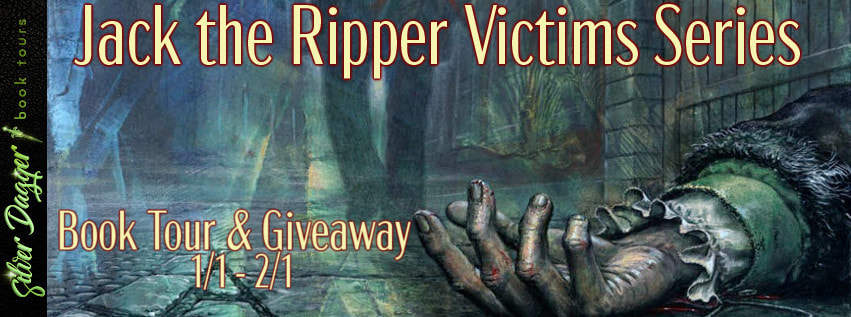
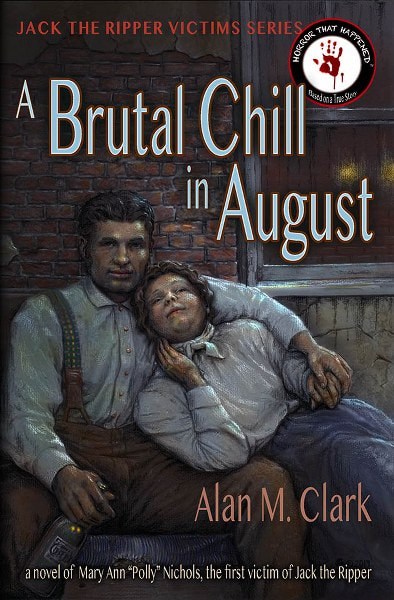


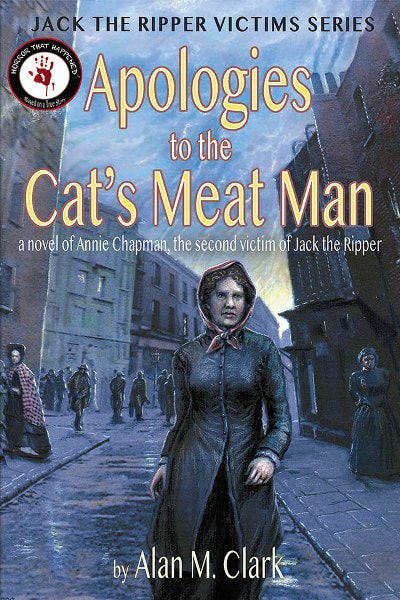
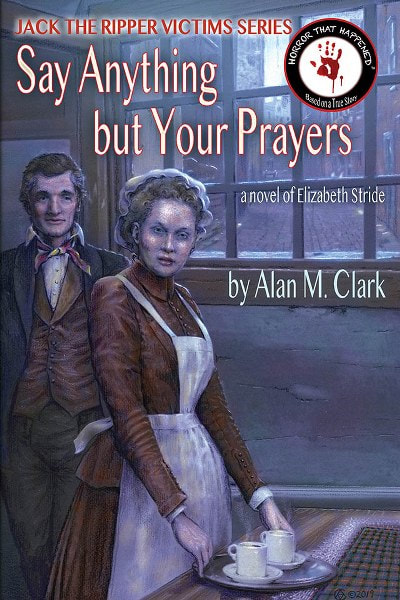
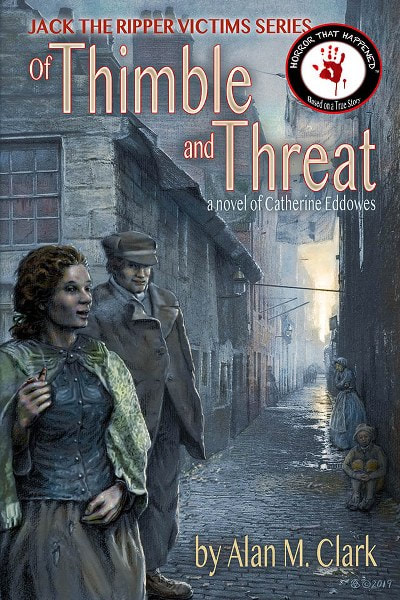
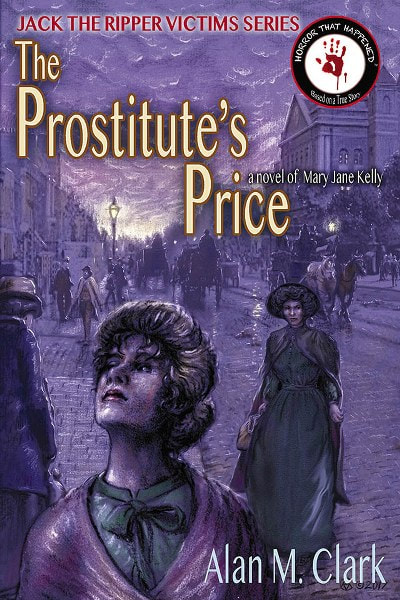

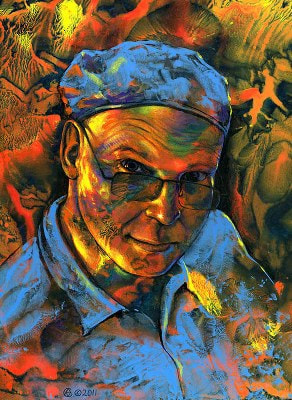




No comments:
Post a Comment